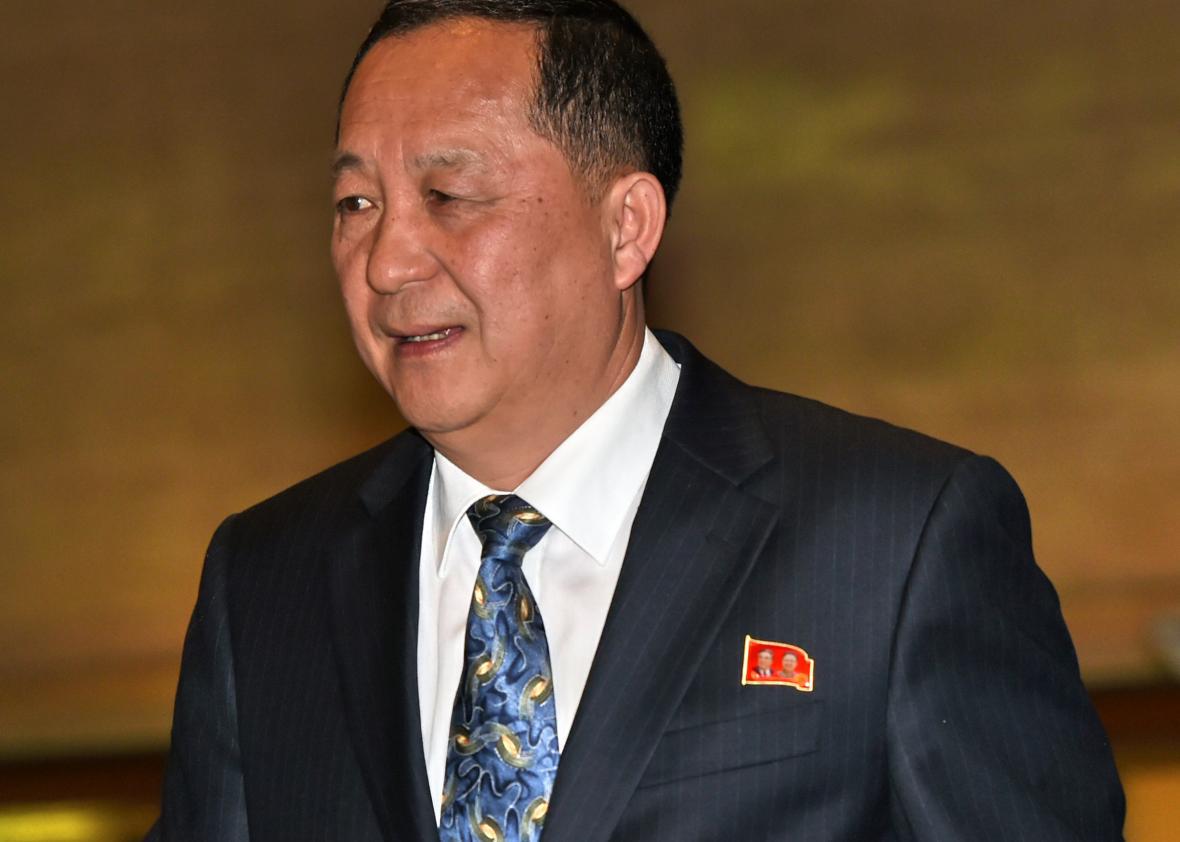North Korean Foreign Minister Ri Yong-ho told reporters in New York on Monday that President Trump has “declared war” on his country and he believes his government has “every right to make countermeasures, including the right to shoot down the U.S. bombers.”
Ri was likely referring to a tweet Trump posted on Sunday: “Just heard Foreign Minister of North Korea speak at U.N. If he echoes thoughts of Little Rocket Man, they won’t be around much longer!” During his own speech to the U.N., Trump said that if the regime continues to threaten the U.S. or its allies, “we will have no choice but to totally destroy North Korea.”
The planes Ri referred to are the B-1B bombers that the U.S. regularly flies over the Korean Peninsula as a show of force. Over the weekend, B-1Bs with fighter escorts flew in international airspace off the east coast of North Korea. According to the U.S., the flights extended “farther north of the Demilitarized Zone than any U.S. fighter or bomber had gone off the North Korean coast in the 21st century.”
The flights enrage North Korea’s government, and the regime has suggested before that it is capable of shooting them down. In August, North Korea threatened to fire missiles toward Guam, which hosts the base where the B-1B flights take off, though it eventually backed off.
All this is pretty scary, but it’s still not a good idea to overreact to every bellicose statement from North Korea, which has been threatening for years to drown the U.S. in a “sea of fire.” North Korea seems a bit baffled by Trump’s rhetoric. One of the more telling anecdotes in a New Yorker feature on the Hermit Kingdom describes a senior diplomat looking “stricken” when asked by reporter Evan Osnos to respond to a Trump tweet—he then has Osnos repeat the tweet three times as he takes notes. But still, there’s little indication yet that either side is looking to turn words into potentially catastrophic action.
As for the “declaration of war” claim, in some sense the U.S. and North Korea are already at war: The 1950–53 Korean War ended in an armistice, not a peace treaty. If the uneasy peace that has held since then were to come to an end, it would be with something more dramatic and less ambiguous than a press conference or a tweet.
